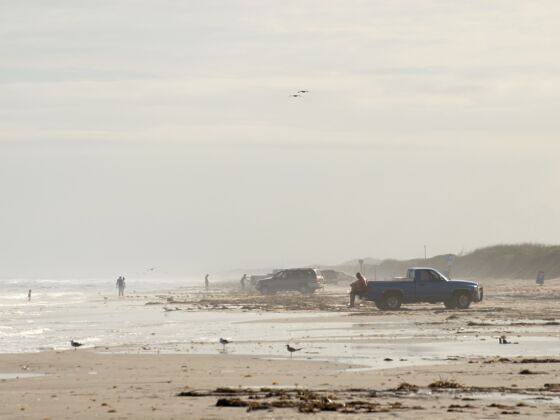“You can’t go home again,” wrote Thomas Wolfe. He was referring to the spiritual experience of returning to that place that nursed you, that place that molded you before sending you out into the world. He wasn’t referring to the physical, those things you can touch and feel through hands that have aged and wrinkled.


“Somewhere about here,” I tell my son as I pull over and park the truck along what I presume to be Fisherman Drive in Crystal Beach, Texas.
I survey the distance from where I stand to where the dunes once stood. I look northward toward the highway.
“Maybe a little closer to the beach.” I walk south, trying to find something amid the nothingness — a landmark, a structure, anything stable that existed in this place before Ike leveled it. Nothing is familiar.
“Maybe about here. I think our driveway was here.”
“So your house was…”
“Just over there. I think. My room was on the other side, to the back.”
It was a small, two-story beach house, red with white trim. I didn’t care for it then but I long for it now. One last look around at the destruction and we climb back in the truck, turn around in what may have once been my driveway, and head for town.
“There was a teen club somewhere over there,” I say as we bump along a road still in need of repairs. “And that’s where the corner store used to be.”
“It’s sad,” he says as we roll past piles of debris.
Hurricane Ike destroyed my hometown. Very little remains beyond the memories I have of weather-beaten storefronts, decaying homes wrinkled by the salt air, and the smell of fresh seafood and marsh grass. These have been replaced with upscale vacation homes and new businesses that don’t reek of saltwater dampness and windblown sand. It’s rebounding from the storm but it’s different. It’s not the same. It never will be the same.
Gone are the greasy spoons with doors that made noises when they closed, if they closed at all on their own. Gone are the broken fences that no longer kept anything out, replaced by new fences that keep everything in. Gone are the scrappy people who fought to make a life on the Peninsula. They have been replaced by people who vacation and build new fences. Good people. Hard-working people just like the ones they replaced — but different.
There are those who say Bolivar Peninsula will come back better than it was. They may be right. But what saddens me is that it will never come back as it was. It may rise like a phoenix from the ashes, property values may skyrocket and commercial development may bring people who enjoy fine dining and value strong fences, but it will never again be that place that nursed me, that place that molded me before sending me out into the world.
Wolfe was right. You can’t go home again. Sometimes you can’t even find it. * Learn more about the travel journalism courses offered at MatadorU.